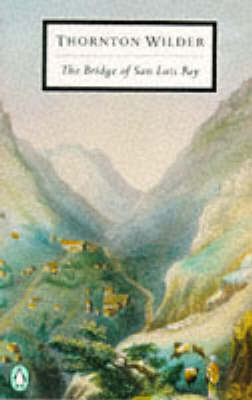Reviewed by gmcgregor on
The five are are an older woman estranged from her beloved daughter, that woman's young helpmeet, a young man mourning the loss of his identical twin brother, a stage manager who made an actress famous, and the actress' son. It's a brief little novella, but it's actually more a series of interconnected short stories than anything else. There are four stories going on: the story of the fall of the bridge and its effect on the local populace, the story of the woman and her companion, the story of the twin, and the story of the manager and the actress' son. The people on the bridge, far from being sinners cast down by a vengeful deity, were for the most part flawed but fundamentally good people who had experienced sorrow but were about to make a turn into happiness. What divine justice is there in that?
Even Brother Juniper can't see any. But while the mysteries of life and death may not be revealed by the story of those who perished with the bridge, what really comes through in these stories is love. The love of a parent for her child, the affection between companions, the love of siblings, romantic love, unrequited love...it actually reminds me of Love, Actually (which I know some people wish would vanish entirely from the earth, and definitely has issues, but I attach a lot of sentimental value to) in the way that it highlights the bonds between people. At the end, it's love that moves us, no matter what form that love takes.
This is a small book with a big reputation, and I...didn't really get the hype? Yes, it was good and surprisingly thought-provoking considering its length, but I wouldn't have identified it as a literary classic if I didn't already know it was exactly that going in, if you know what I mean. It was definitely a quality piece of writing, but it wasn't...special. I would be willing to bet that within a year I will have forgotten that I ever read it. But it is a classic, so it's apparently been very meaningful to some people and it's definitely an enjoyable, quick read, so no reason not to try it out if you're curious!
Reading updates
- Started reading
- 6 September, 2016: Finished reading
- 6 September, 2016: Reviewed
